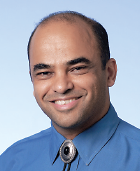Making Peace With Patient Suicide
Abstract

Death gives pause to all who have yet to experience it. As physicians, we take an unspoken oath to do all we can to delay death. A mentor once told me that a physician has only two functions: to extend life and to alleviate suffering. When the agent of death is the patient, it’s hard not to see how psychiatrists might feel they’ve failed at both functions.
Earlier this academic year, I learned one of my patients had taken his own life. Months after the event I decided to present an M&M case to my fellow residents, and now I find myself journaling my thoughts in this article. My goal was to give others an opportunity to experience it vicariously. And while I hope each of you never have this experience, I hope my thoughts might provide some guidance should you find yourself in a similar situation—although in reality, I’m not sure one can really be prepared to face this.
After receiving the news, I remember the sting. I literally couldn’t hear well after that news. I finished up my morning clinic and took an afternoon didactics off. My faculty supervisor made it a point to reach out to me. I talked about how numb I felt. How I didn’t know how I felt. How I couldn’t stop going over the details and the what-ifs. I processed the event over the weekend and checked back in afterward.
I wanted to know “How should I feel?” I found myself experiencing denial like “Maybe it was an accident?” I had legal questions like “Did I keep records appropriately? Am I in legal trouble? Can I call the family?” I had moral questions like “Did I do my best for him?” and “Was my heart in the right place?” I was angry inwardly. I questioned my own ability: “Am I a good doctor?” I catastrophized a little: “Will I be forced to quit medicine? Maybe I’m just no good at this doctor thing.” Philosophically, I wondered, “Am I responsible for another man’s choices?” I had cultural/spiritual thoughts: “Is his family OK? Can I offer them comfort?”
I also experienced admiration for our field. Our little clinic helps a lot of people to find relief from suffering, and every staff member plays a part. I was concerned about my peers. I checked in with them and thanked them for all they do to take care of our patients. I checked in with my supervisor and the residents who had also known my patient. But then it hit. Sadness. I am sad that a man suffered and lost hope for relief coming in any way other than death. Of course that was entirely appropriate; however, it seemed like others with similar experiences were able to “get over it” rather quickly.
What helped? I surrounded myself with caring colleagues and was a caring colleague to others. Also, knowing that I had patients who needed a fully functional doctor compelled me to get better. Ultimately, I think taking joy in something larger than myself helped. I watched my kid try to put together a Lego model. I went jogging in a wooded neighborhood. I read poetry, listened to music, and played an instrument. And I found peace.
I found this conclusion to be freeing: patients have sovereignty over their own choices—in my personal view, a self-evident, inalienable right gifted by (and I have no other word for it) God. That means they get to choose. We can only help inform patients with therapy and stabilize them with medication so they make a good choice, but ultimately, they get to choose. ■



